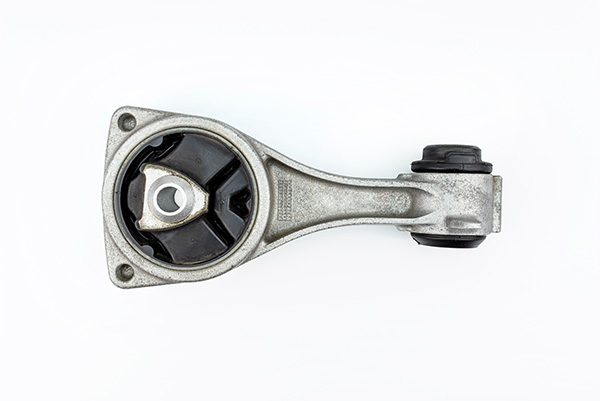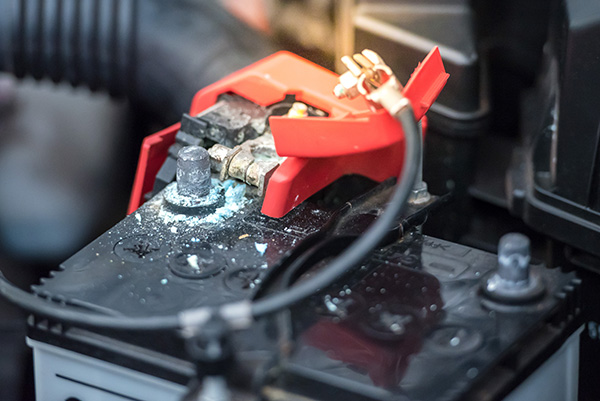Posted on 1/30/2026

If your coolant reservoir keeps getting low, your car is telling you something. Coolant doesn’t get used up like fuel. In a healthy cooling system, the level stays pretty steady between services. So when the reservoir level keeps dropping, it usually means one of two things: the system is leaking, or the engine is pushing coolant out of the system under certain conditions. Either way, it’s worth taking seriously because running low on coolant can lead to overheating, poor heater performance, and expensive engine damage if it goes far enough. What The Reservoir Level Is Actually Showing You The reservoir is a buffer tank. As the coolant heats up, it expands and moves into the reservoir. As it cools, it contracts and gets pulled back into the radiator or pressurized part of the system. That’s why the reservoir has a cold-fill line and a hot-fill line. If the reservoir keeps dropping when you check it cold, the system is losing coolant somewhere or n ... read more
Posted on 12/19/2025

If you have ever wondered whether your diesel truck has spark plugs, you are not alone. Spark plugs and glow plugs sound similar, and both live in the cylinder head, but they do very different jobs. Knowing how each one works helps you understand cold start issues, misfires, and why the maintenance schedule is not the same for gas and diesel vehicles. How Gasoline Engines Use Spark Plugs Gasoline engines rely on a controlled spark to ignite the air-fuel mixture. Each cylinder has a spark plug threaded into the head, and an ignition coil sends high voltage to jump the gap at the tip of the plug. That tiny spark happens thousands of times per minute while you drive, and timing has to be very precise for smooth power and good fuel economy. Spark plugs live in a tough environment. Heat, pressure, and combustion deposits slowly wear the electrodes and insulator. As the gap gets wider and the tip gets dirty, the spark becomes weaker and less consistent. That is when you s ... read more
Posted on 11/28/2025

When engine mounts get tired, normal vibration and movement stop being filtered out and start making their way into the cabin. The change can be subtle at first, then grow into shakes, thumps, and odd noises that make the car feel older than it is. Here are five clear signs the mounts are past their best, why they happen, and what to do next. 1) Stronger Vibration at Idle A smooth idle should feel calm through the seat and steering wheel. If you notice a low buzz in Drive at a stoplight that eases when you shift to Neutral, one or more mounts may not be isolating engine pulses anymore. Rubber hardens with age, and fluid-filled mounts can leak and collapse, so the engine’s natural vibration passes through the subframe and into the cabin. Because idle has fewer firing events per second, small problems are easier to feel there first. 2) Thump or Clunk When Shifting Into Gear A sharp knock as the transmission engages from Park to Drive or Reverse ... read more
Posted on 10/31/2025

If you drive anywhere along the I-5 corridor in Washington, you already know how stressful it can get. Whether you're heading toward Seattle during the morning rush or sitting through backups on your way home to Covington, traffic congestion is a frustrating part of daily life. But staying calm isn’t just better for your mental health, it also helps you drive more safely and prevents added wear on your vehicle. Here’s how to manage stress during long commutes and make sure your car stays in top shape, even when you’re stuck in stop-and-go conditions. 1. Give Yourself Extra Time Whenever Possible Nothing increases driving anxiety faster than running late. If you know you’ll be driving during peak traffic hours, try building a time buffer into your schedule. Leaving just 10 or 15 minutes earlier can help you avoid the heaviest congestion and give you peace of mind when things slow down. Use a navigation app to check traffic before you leave ... read more
Posted on 9/26/2025

Your car battery does more than just start the engine. It powers essential systems like lights, the radio, climate control, and various electronic modules. Over time, even a good battery can begin to lose strength, and poor connections at the terminals can make things worse. That’s why replacing your battery and cleaning the terminals at the same time is one of the smartest ways to keep your vehicle reliable. Many drivers focus only on the battery itself and overlook the cables and connections. But without a strong, clean connection, even a brand-new battery may not perform as it should. Let’s look at how these two tasks work together and why doing them at the same time is better than handling them separately. The Role of Battery Terminals Battery terminals are the metal posts or pads where the battery cables connect. These serve as the transfer point for electricity between the battery and the rest of the vehicle. Over time, terminals can become coated ... read more